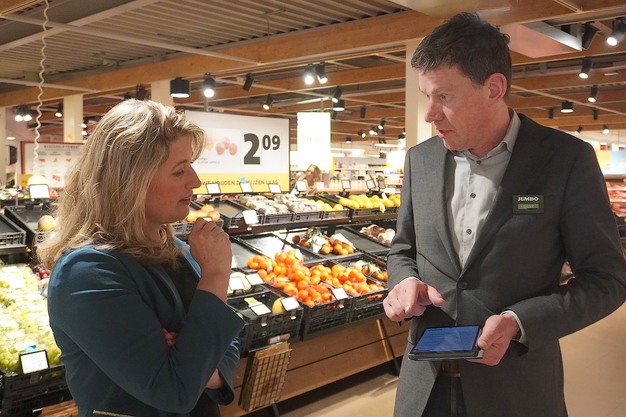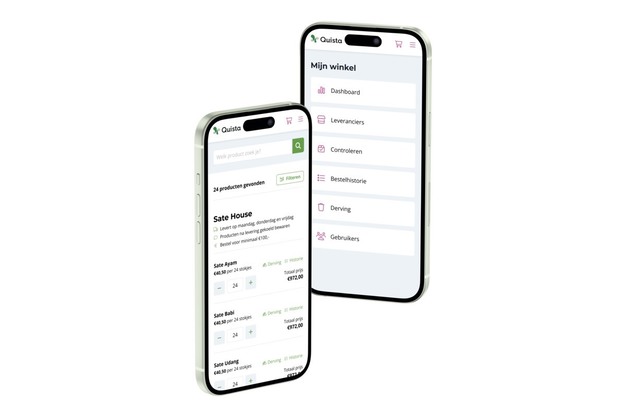Many supermarket owners use buying locally as a way to stand out from the competition. Shoppers love fresh, regional produce, which strengthens customer loyalty. Yet buying locally often proves complex and time-consuming, so its profitability is not always apparent. In the Netherlands, Eline van Muilwijk, developer of the Quista app, and Jumbo store owner Bart de Bresser have come up with a solution.
 Eline van Muilwijk and Jumbo store owner Bart de Bresser
Eline van Muilwijk and Jumbo store owner Bart de Bresser
Local products = shrewd marketing strategy
Eline says local products are a clever way for supermarkets to distinguish themselves. "Customers come especially for local strawberries or local farmers' meals. That reinforces the store's identity and creates a bond with those clients," she explains. Research shows that buying locally can add to the shopping experience, but it is often hard to determine the exact financial benefits.
The complexities of local buying
It may sound good, but buying locally brings many practical challenges. It is often time-consuming, with orders placed by phone or e-mail, irregular deliveries, and less visibility into waste. Modern supermarkets offer thousands of products, and connecting with local suppliers is tricky. Eline illustrates this with the example of a Jumbo store owner ordering strawberries locally: "If one employee orders 12 crates and another throws out 10, without communicating that, problems arise."
The Quista app helps by digitizing and centralizing the ordering process. That reduces errors, offers ordering recommendations based on previous purchases, and makes the process more manageable. Supermarkets can, thus, plan better and manage their local assortment more efficiently.

Experience leads to an answer
Eline's retail sector experience means she is aware of local buying issues. She saw that those processes were often not structured enough. "Local buying requires discipline and smart tools to organize the process professionally," says Eline. That realization led her to develop the Quista app. After two years of experimentation, the app was ready for the market, and several supermarket owners now use it.
Advantages for suppliers
The app offers advantages for suppliers, too. They usually get orders via various challenges; now, suppliers can manage all of those digitally and centrally. That makes the process less error-prone and provides a greater production and logistics overview. Suppliers can easily manage their range and offer new products to supermarkets, further increasing efficiency.
Local as a serious business strategy
Eline points out that buying locally should not be approached as an idealistic project. "Ultimately, it's about trade, not highlighting 'feel-good' farmers. It only works if it makes efficient, commercial sense. Otherwise, we're wasting each other's time," she concludes. The Quista app not only simplifies local buying but makes it more profitable for supermarkets and suppliers alike. Eline plans to introduce the app in other European countries, like Germany and Austria, to enable larger-scale local buying.
![]() Eline van Muilwijk
Eline van Muilwijk
Quista Solutions
www.quistasolutions.nl
